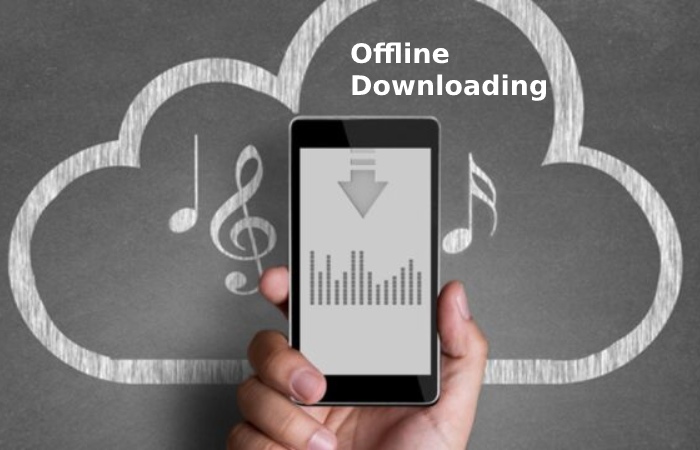offline downloads versus online streaming – When it comes to listening to or watching music or video on your mobile device, you may be given a choice to stream it or download it.
However, depending on how and when you want to utilize the material, selecting a choice may not be as straightforward as it looks.
On top of that, specific sites only offer downloading services, such as The Pirate Bay, whereas specific sites offer both streaming and downloading services like Netflix.
Here are some crucial considerations to consider when deciding whether to use your mobile data for streaming or downloading.
Table of Contents
What Is Online Streaming?
Streaming is a method of seeing or listening to material without downloading anything. The term “streaming” is frequently used for watching movies and listening to music through the internet.
Streaming is a quick way to get to online material. The material is delivered immediately to your device, but it is not kept there. Instead, the streaming material might “live” in the cloud or on the computer or server of someone else.
For example, if you watch a movie from Amazon Prime, you may watch it on your Smart TV, or, but it is stored on Amazon’s servers. Therefore, there is no duplicate of the video on your device once you have finished watching it.
What Is Offline Downloading?

Downloading material, as opposed to streaming, saves it to your computer, tablet, smartphone, or other devices. You’re downloading digital stuff from the internet or a specific website to store on your device.
You can play a downloaded file as many times as you wish. Downloading is simple, and there are extensive libraries of stuff to choose from.
Downloading movies from subscription services or public domain sites is also straightforward. The downloaded content is directly saved on your phone or another mobile device for you to enjoy on the move.
Online Streaming Vs. Offline Downloading-Which One Is Better?
Online streaming and offline downloading offer the same services, but there are a few considerations that you must look after to decide which one will be better.
Let’s take a look:
1: They Are Functionally the Same
In both streaming and downloading, you get the file on your device. The main distinction is that you can play a streamed file when available. However, a downloaded file is retained in the memory.
Both techniques entail downloading, but only one leaves you with a copy on your device that you can access at any time without having to re-download the material.
When you access a downloaded file later, you do not need to use mobile data to play it. However, if you select to stream a file again, you must download the data again.
2: It Takes An Equal Amount Of Data
Another thing to keep in mind is that the size of the file itself is often the same whether you stream it or download it, as long as the same degree of quality is provided for both options.
For example, if an MP3 of a song is 3.5 MB, whether you download or stream it makes no difference. But, the moment you play it, it will snatch 3.5 MB of data from your daily 1 GB or 2GB data plan.
However, specific selections may alter based on the available quality. For example, if you can see a video at 480p but download it in 720p, the 720p file will be bigger than the 480p version. This means that downloading the 720p video consumes more bandwidth than streaming the 480p version.
3: Intended Use Of The File
Since so many elements are the same in streaming and downloading, whether you stream or download a file should determine how you intend to utilize the content.
If you have favorite music and can see yourself listening to it every day, downloading the file is the preferable alternative. You utilize data during the initial download if you download the MP3 to your device’s memory using a music downloader.
Then, if you wish to listen to it, you can simply access it from your device’s memory. The data is just used once, and the music can be replayed endlessly.
4: Stopping And Starting
Downloaded material, instead of streaming, is saved on your computer or smartphone. You’re downloading digital stuff from the internet or a specific website to store on your device. Download content to your phone or another mobile device to enjoy it on the move.
On the other hand, streaming results in reduced data consumption if you start an audio or video clip. And also, A decide you don’t want to finish it.
Downloading necessitates retrieving and storing the complete file before you can enjoy it, whereas streaming allows it to play without requiring the entire file to be loaded. So, leaving a streaming file in the middle saves you the amount of data you don’t listen to, whereas a downloaded file does not.
To Conclude
While this may appear to be a lot of thought for deciding whether to stream or download a file, these are essential factors if you are using a device with a restricted data plan.
So, take a look at the file size and think about how you want to utilize it. Then you may make an informed decision based on what is best for you.
If you want to know more, ask us in the comment section.
Also Read: How EMR Software Has Changed The Face of Chiropractic Care?
